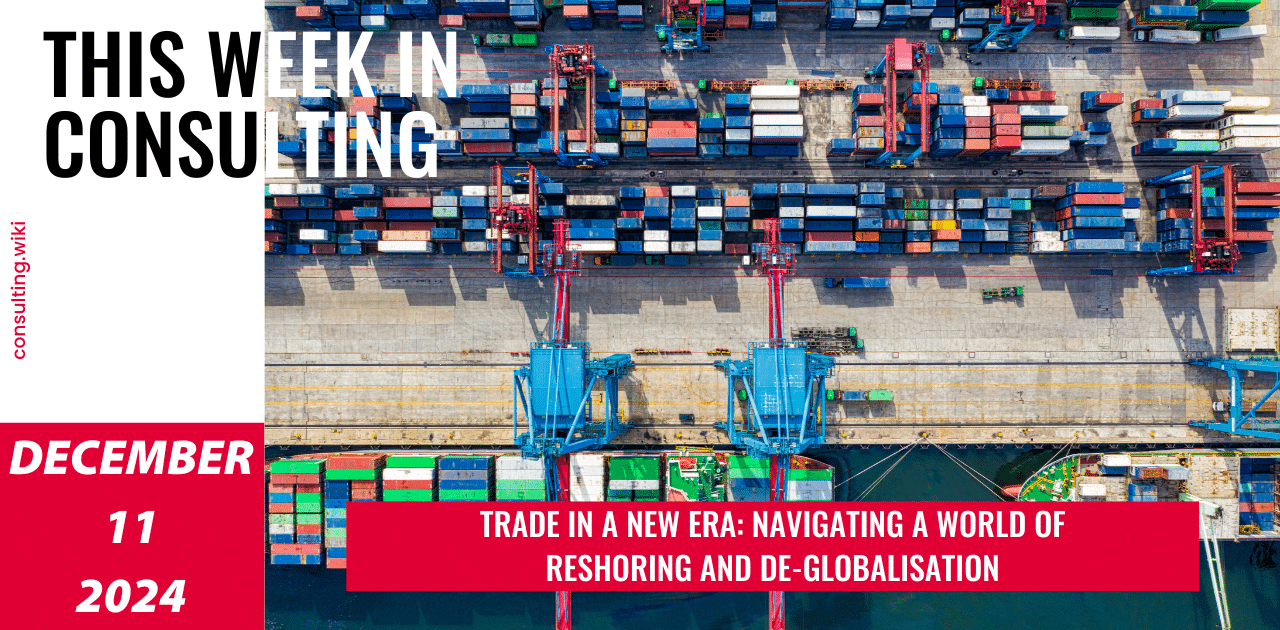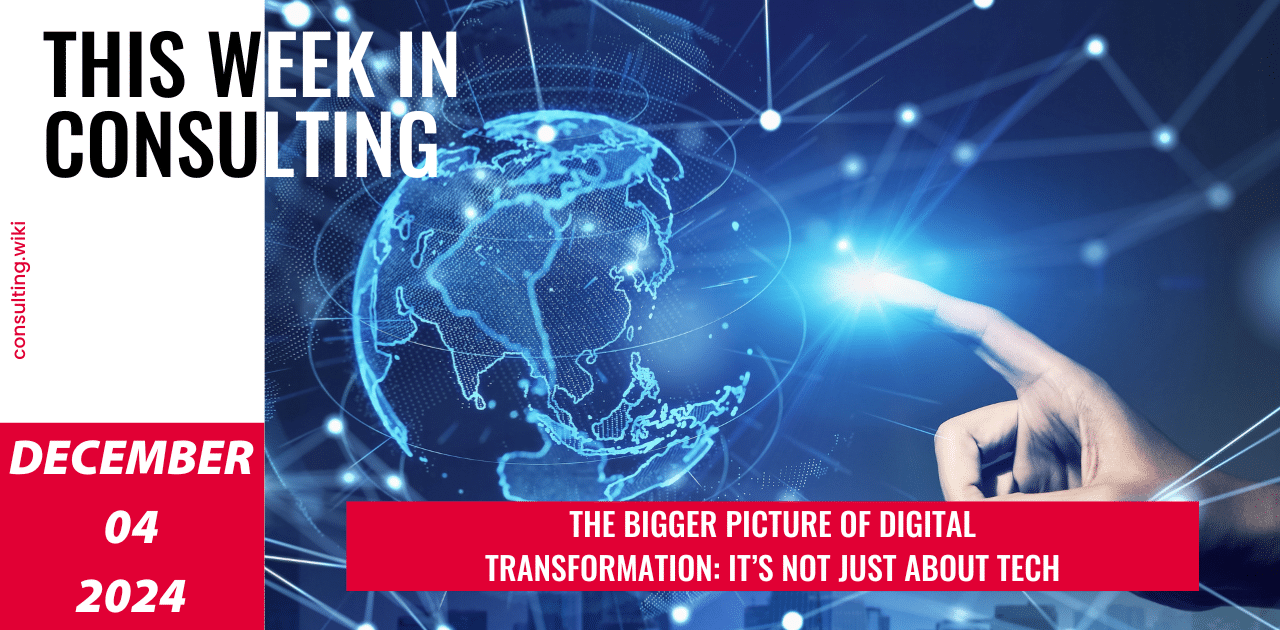
Is Your Organization Maximizing the Benefits of Consulting Expertise? Check Out the Top 5 Industries and Types of Projects that Benefit the Most
Are you maximizing the benefits of consulting expertise? Consultants can lend their expertise to organizations and help them enhance products, improve services, revamp customer engagement, boost ROI, and much more.
Let’s take a look at the Top 5 Industries that generally benefit the most by engaging Consultants. The amount of change and transformation in an industry is a clear indication of where Consultants are needed the most.
Our List of The 5 Industries with the highest demand for consulting services includes Financial Services, Health & Life Science, Manufacturing, Public Sector and Energy
Read also...
To help you decide whether it is better to make or buy your Consulting, always focus on the benefits and the specifics of the particular project.
1. Financial Services-
The Financial Services Industry is traditionally one of the largest users of Management Consulting.
From Banking to Insurance or Wealth Management, the industry is facing unprecedented challenges from both traditional and tech players.
New technology is enabling new business models and rendering old platforms obsolete. Besides, most companies are shifting from a product to a customer-centric model.
Being customer-centric is not just about listening to how your customers want to interact with you, but about understanding what they value beyond your products and services, so your company can identify the whole brand-customer relationship, and further develop in meaningful ways.
The big winners in Fintech disrupting the industry are those who operate from an end-user perspective rather than a product-perspective.
Top 3 Trends Shaping Today’s Financial sector are:
Taking the customer-centric approach is critical for any financial services brand that wants to remain relevant today.
1. Utilizing AI and Data-driven marketing
Exploring customer data is the key to delivering more powerful and very relevant customer experiences.
And it’s not surprising that 40% of financial institutions agree that better targeting and personalization are top drivers of their marketing strategies. However, collecting data and utilizing the findings still needs to be improved, and many financial organizations feel lacking in that capacity.
2. Supporting new customer experience with new technologies
The transition currently underway mainly revolves around upgrading to new technologies and abandoning the old one.
Companies who sufficiently invest in new technologies are reaping bigger benefits compared to the ones moving at a slower pace. But the challenge lies in going beyond a mere adoption and mastering the use of new technologies in every way possible.
3. Engaging better through Relevant Holistic Content –
Customers are people, and they like appealing and relevant content delivered to them consistently. For brands, the best way to build and develop customer-brand relationships revolves around fresh and engaging Social media interaction.
If your organization fails to create the right content to enable customer engagement at every stage of their journey, you risk missing opportunities to further the relationship.
Depending on your Organization’s needs and goals, you may want to consider where to invest your resources to achieve these carefully.
And here is a brief outline of the types of consulting projects to help you achieve them:
Sample projects you might like to consider:
- Designing a new incentive scheme for the commercial branch to drive customer and value-oriented behaviors in Retail Banking
- Building a roadmap to modernize the business model from implementing self-service to sharing capabilities across businesses and digitizing processes to spur efficiency in Capital Markets
- Benchmarking the IT performance and investments priorities amongst Asia-based Insurers
- Reviewing the Risk Function Operating Model to increase agility in Banking.
2. Public Sector –
The Public Sector, namely government and administrations, is a very large segment for the consulting industry. The types of consulting projects can vary greatly depending on the level of development of the countries. Governments in all economies are asking for help to drive national investment strategies or fiscal policies favoring economic development.
They also need support to analyze and anticipate complex situations like the Brexit, for example (according to Sky News, Britain spent £75M with the largest consulting firms for Brexit preparation)
Many developing economies need support to manage large infrastructure projects. Western economies leverage consultants to drive the simplification and productivity initiatives in public services. In recent years, the pressure is mounting on Governments the reduce the cost of consulting engagements. Even the IMF recently recommended for developing economies to reduce the utilization of Blue Chip consultancies.
Sample projects you might like to consider:
- Providing government with actionable advice to support the government in accelerating economic development
- Redesigning the end to end logistics process for a ministry of defense
- Developing policies and strategies to support Fintech and financial inclusiveness for Asian Governments
Support public bodies (government, commissions, associations, … ) with expert analysis in case of potential Antitrust situations.
3. Health & Life Sciences –
Health and Life Sciences, in its largest definition, represents a good portion of consulting industry demand. This significant share is indeed no surprise if we take a better look at it. Pharmaceuticals, Medical Technology, Healthcare payers, and delivery systems are experiencing invigorating changes and face several challenges as well.
Healthcare costs are exponentially growing in many countries. In the US, they are close to 20% of GDP. Healthcare Payers are under pressure to reduce costs while providers need to increase their efficiency. Pharmaceutical companies have to navigate vast R&D portfolios as their shareholders expect significant returns.
Besides, they have to deal with a complex ecosystem that includes a challenging tryptic user (patient), prescriber (physician), and a third party (payer).
Let’s take a quick look at some of the Top Trends in Today’s Health and Life Sciences sector are:
Healthcare providers are urgently exploring ways to innovate, adapt, and collaborate across the digital health sciences network. Their goal is to reduce costs, improve patient safety and care quality, and gain market share. Which breakthrough technologies should your organization consider to achieve these goals?
1. Digitization of Personal Biodata
Shortly, every newborn child will have his or her bio information recorded and digitized for all subsequent uses. The goal is to improve the healthcare system efficiency and at the same time provide much better, faster, and adequate services to a patient whenever they need it.
2. Automation and Internet of Things (IoT) sensors will be more broadly applied in manufacturing
More companies are now exploring IoT to improve value and product quality, operational efficiency, compliance, and supply chain management.
3. Telemedicine and Mobile technology Adoption –
New mobile and web applications are changing how providers, researchers, and patients interact with each other. Data today is at the center of Life sciences innovation. Using data will have tremendous effects on a variety of applications, from creating personalized medicine to AI speed diagnostics, for example.
Sample projects you might like to consider:
- Developing strategies to accelerate the shift from Volume to Value in Healthcare
- Creating an M&A Pipeline to refresh and dynamize innovation in Pharmaceuticals
- Building actuarial models to optimize growth vs. profitability for Healthcare Payors
- Transforming a national healthcare system to ensure better coverage of citizens.
4. Manufacturing –
The manufacturing sector also makes a significant share of consulting investments. Manufacturing must be noted, is made of several distinct industries, rarely mentioned as such. Our definition of manufacturing includes Automotive, Aerospace, Consumer packaged goods, Electronics, and Process industries. All these industries are facing growing headwinds, competitivity challenges, and an aging workforce. They are also challenged to embrace new technologies that can completely disrupt their value chains.
Besides, as the national economies become more global, we also observe regional customization and personalization of products and services. This phenomenon leads to an acceleration of innovation cycles and a growing complexity to manage. Last but not least, the wage gap between Western and Eastern economies has reduced with more possibilities for automation at an affordable cost.
Most companies are rethinking their global footprint and supply chain to adapt to tomorrow’s challenges.
Sample projects you might like to consider:
- Scanning the Manufacturing Start-up ecosystem to identify the right partners to reduce maintenance costs
- Implementing a new procurement framework and systems to operate seamlessly with strategic suppliers
- Embarking all manufacturing plants in a transformation mixing lean and digital for a motorbike company
- Leveraging Concurrent Engineering and Spiral Development to reduce costs and shorten development times with late customization in Aerospace.
5. Energy & Environment –
The energy and environment sector is closely linked to the public interest. Oil and gas, energy, utilities, renewable energy are at the center of intense dialogue between the public and public interest groups, and private companies operating in this space.
Companies in Energy and Utilities are facing increasing customer demand, high capital investment, increased competition, and more stringent regulations while companies in Oil and Gas continue to cope with the new “normal” like lower prices, higher volatility, and shorter cycles.
Most companies focus their efforts on maximizing the short term returns of their investments, improving resource productivity, and lowering total operating costs.
An interesting new trend is the growing utilization of data analytics in support of operations to leverage the massive amount of data available.
Sample projects you might like to consider:
- Leveraging IoT to increase network reliability thanks to predictive maintenance
- Mapping the value pools post-crisis in Unconventional Oil & Gas
- Redesigning commodity trading systems to speed up decision making while managing risks
- Using big data analytical techniques to maximize returns in Energy Retail.
Considering launching a new Consulting project?
We will be happy to help and give you a fresh and objective perspective.
Please feel free to contact us today, to learn more about Consulting Quest,
and how we can help with all your Consulting needs
Hélène Laffitte is the CEO of Consulting Quest, a Global Performance-Driven Consulting Platform and author of “Smart Consulting Sourcing”, a step by step guide to getting the best ROI from your consulting. With a blend of experience in Procurement and Consulting, Hélène is passionate about helping Companies create more value through Consulting.



